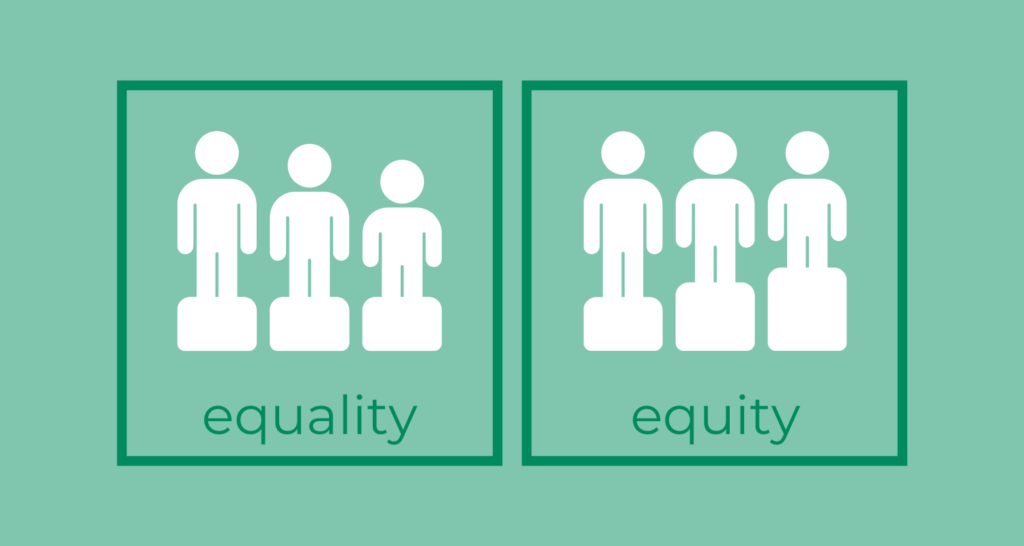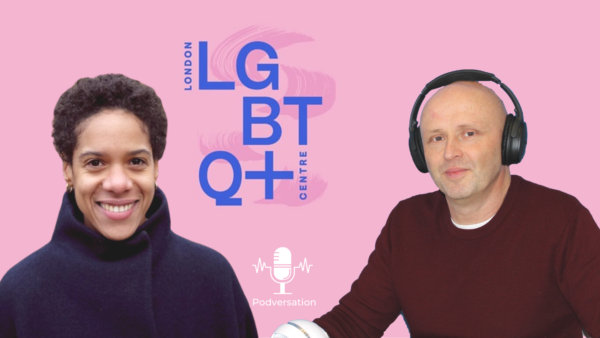Podcast transcript:
Diversity, Equity and Inclusion is a topic which is getting more and more attention in today’s workplace. And rightly so. In today’s podcast, I would like to take you through a basic introduction to DEI. And by the way, I recognise my perspective and my privilege in doing this: I identify as a middle aged straight white male, meaning that I fall into none of the protected characteristics groups that define DEI’s focus.
I am fortunate enough have a platform (thank you for listening or reading) and I am in the privileged position of being able to use that platform in a way that I hope promotes understanding around DEI issues. I see myself as feminist and anti-racist and I continue to educate myself and take personal responsibility in those areas as well as in other areas of diversity, equity, inclusion.
And as the leadership sponsor of DEI at Strengthscope, I am committed to furthering Strengthscope’s activities and actions on a range of DEI issues. And I encourage other leaders to do the same.
What I plan to cover today includes the following areas and questions:
- What is DEI?
- How is it helpful?
- Why does it matter?
- Examples of DEI initiatives
- Are DEI programmes working?
- How can you create an inclusive culture?
What is DEI? What does DEI include?
Diversity refers to differences in the workplace, an organisation, a department, or a team. This may mean differences in race, ethnicity, gender, gender identity, sexual orientation, age, socioeconomic background, as well as neurodiversity.
Equity focuses on ensuring that processes and policies are impartial and fair and provide equitable outcomes for every employee.
Inclusion involves taking practical steps to ensure that people feel a sense of belonging and that they feel psychologically safe at work.

How is DEI in the workplace helpful?
Now more than ever, employers recognise that a greater focus on DEI is necessary to attract, retain and motivate employees. Workers’ expectations have shifted over time. Whereas in previous generations, it was enough to offer employees a stable job and reasonable pay, today’s employees expect much more.
Now more than ever, employees expect to work for an organisation with a meaningful mission; which listens to them; where they have agency in influencing their work; where they and their colleagues are fairly treated; and where they can feel safe to be themselves. These aspects of work, many of which relate to DEI principles, are now seen more as the norm rather than an aspiration.
When organisations apply DEI principles to their day-to-day, they are more likely to see improved recruitment and retention of the best staff. As a result, people are attracted to join and stay (source).
Why does DEI matter?
Regarding the business case for DEI, there are two main strands: moral and commercial. Going to the commercial aspect first, a Boston Consulting Group study found that companies with more diverse management teams have 19% higher revenues due to being more innovative.
An American Sociological Association study found that for every 1% rise in the rate of gender diversity and ethnic diversity in a workforce, there is a 3% and 9% rise in sales revenues, respectively.
According to most of the research on diversity, including the Boston Consulting Group work, this improvement in business performance due to increased diversity is attributed mainly to an increased capacity for creativity and innovation. And this results from the inclusion of a wider range of perspectives and sets of experiences, which is possible in a more diverse workforce.
So, if you encourage greater diversity, you’re going to create more innovation, more capacity for creative thought, and as a result, better decision-making from top to bottom. That is so long as the culture you create is sufficiently psychologically safe for those from diverse groups to feel that they are included, valued and that they truly have a voice.
Beyond this clear business benefit, there is the second element: the moral question of an organisation’s duty of care to each individual working in the organisation. Morally, an organisation should ensure that each person feels valued, understood and can bring their best to work in a safe, considerate, thoughtful environment – free from prejudice.
What are some examples of DEI initiatives?
DEI initiatives and programs vary by organisation and by focus. Diversity programmes, for example, may specifically target under-represented groups within an organisation and aim to recruit new workers to increase numbers of, say, women, people of colour, older workers, or workers from less privileged socioeconomic backgrounds.
Within an organisation, there may be more of a focus on achieving representation at the higher levels, i.e. management and above. This may lead to DEI programmes that support certain groups in breaking through so-called ‘glass ceilings’ by providing more significant opportunities for people in marginalised groups.
Examples of these can include mentorship schemes for under-represented groups or employee resource groups, which allow people to bring together different perspectives, experiences, and ideas around a common social identity such as gender, ethnicity, or sexual identity.
DEI policies or initiatives focusing on equity may explore pay gaps between groups, aiming to establish why differences exist and then to minimise or equalise these. Reviews and updates of existing policies can be undertaken to ensure that there is no direct or indirect discrimination inherent in policies or processes which may have been written some time ago.
DEI initiatives focusing on inclusion might include:
- Celebrating diverse holidays.
- Providing training and education around DEI issues.
- Requesting, and responding to, feedback from diverse employees on changes they would like to see in the workplace that would improve feelings of belonging and inclusion.
Organisations serious about DEI may sponsor groups active in the DEI space, for example, improving opportunities for women in countries that need it most or improving access to mental health services for groups where this is stigmatised.
Are DEI programmes working?
DEI programmes work best when they relate to an organization’s core values, when they are visibly, meaningfully sponsored by senior leadership and when aligned to meeting the organization’s strategic objectives.
DEI programmes do not work when an initiative is ‘performative’ and undertaken solely for the purpose of commercial gain or brand improvement. Or in cases where work is done to increase workforce diversity but without making efforts to create an inclusive culture. As one expert says, “Ignore inclusion, and your diversity will leave” (Pacifico-France, 2021).
As an example, if you undertake a women in leadership programme without addressing the patriarchal culture within which those women work, your DEI initiative will peter out. Both need to be addressed for a DEI programme to be effective.
An effective approach for introducing DEI initiatives involves sensitively consulting with groups from diverse backgrounds to establish where improvements need to be made, as well as undertaking research to examine any systemic biases in policies, strategies, or processes – then trialling different approaches targeted directly at improving diversity, equity, and inclusion.
How can you create an inclusive culture?
Creating a truly inclusive culture requires long-term dedication, commitment, humility, and the capacity to learn and evolve as times change.
Atcheson (2019) in Forbes recommends four crucial steps to create and maintain an inclusive culture:
- Listen – spend time understanding what is working for employees, what could improve, and what is required that is currently lacking.
- Act – take action following consultation and ensure that this action is communicated to employees.
- Value all input – When prioritising what to amplify or change, remember that everyone’s input is equally important.
- Ensure two-way communication between leaders and employees – leaders need to get comfortable being uncomfortable and having their thoughts or ideas challenged.
Conclusion – DEI requires sustained and heartfelt action to be effective
In order for organisations and employees to benefit from the many advantages of diversity, equity and inclusion, it needs to be central to the organisation’s strategy and its values. In that way, ongoing action will be sustained as well as authentic. And the organisation will benefit from the commercial and moral gains that a diverse, equitable and inclusive culture will bring. I hope you’ve found today’s podcast informative. Till next time, stay strong.












